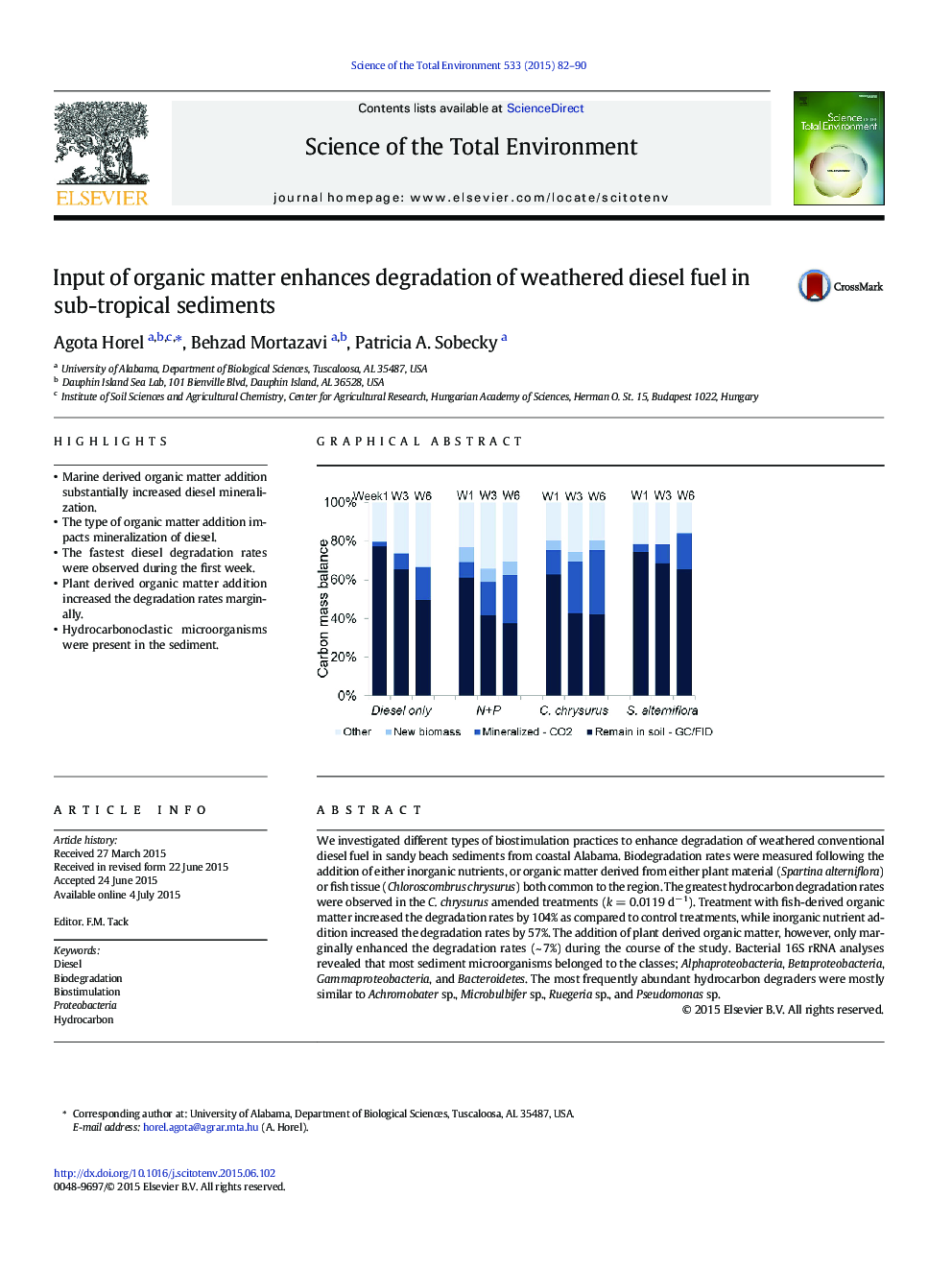| Article ID | Journal | Published Year | Pages | File Type |
|---|---|---|---|---|
| 6326203 | Science of The Total Environment | 2015 | 9 Pages |
â¢Marine derived organic matter addition substantially increased diesel mineralization.â¢The type of organic matter addition impacts mineralization of diesel.â¢The fastest diesel degradation rates were observed during the first week.â¢Plant derived organic matter addition increased the degradation rates marginally.â¢Hydrocarbonoclastic microorganisms were present in the sediment.
We investigated different types of biostimulation practices to enhance degradation of weathered conventional diesel fuel in sandy beach sediments from coastal Alabama. Biodegradation rates were measured following the addition of either inorganic nutrients, or organic matter derived from either plant material (Spartina alterniflora) or fish tissue (Chloroscombrus chrysurus) both common to the region. The greatest hydrocarbon degradation rates were observed in the C. chrysurus amended treatments (k = 0.0119 dâ 1). Treatment with fish-derived organic matter increased the degradation rates by 104% as compared to control treatments, while inorganic nutrient addition increased the degradation rates by 57%. The addition of plant derived organic matter, however, only marginally enhanced the degradation rates (~ 7%) during the course of the study. Bacterial 16S rRNA analyses revealed that most sediment microorganisms belonged to the classes; Alphaproteobacteria, Betaproteobacteria, Gammaproteobacteria, and Bacteroidetes. The most frequently abundant hydrocarbon degraders were mostly similar to Achromobater sp., Microbulbifer sp., Ruegeria sp., and Pseudomonas sp.
Graphical abstractDownload high-res image (85KB)Download full-size image
